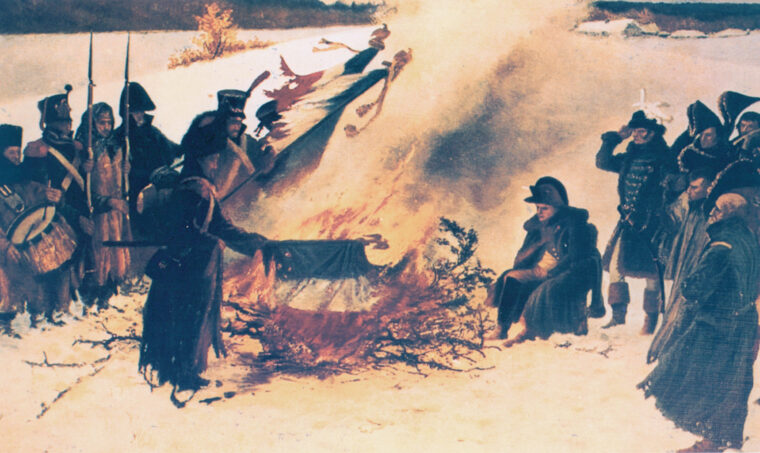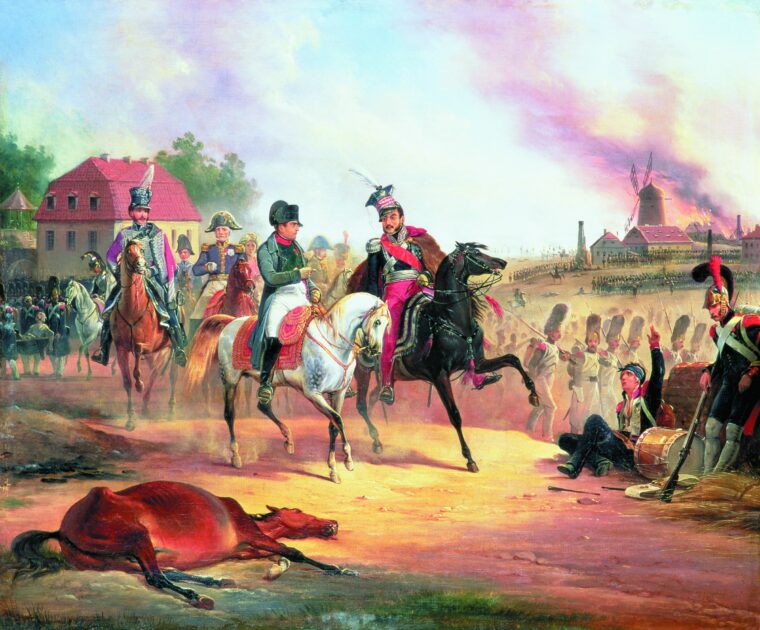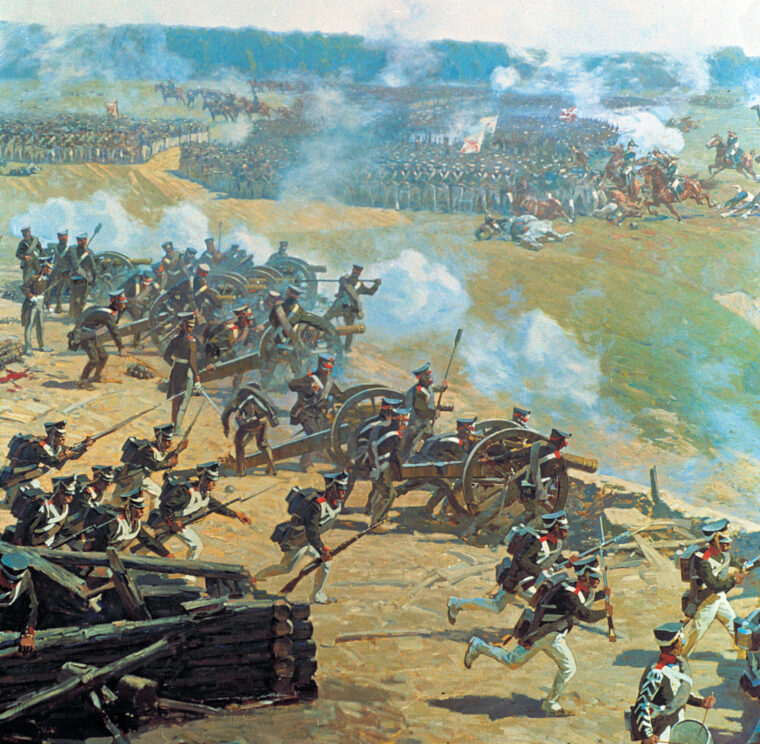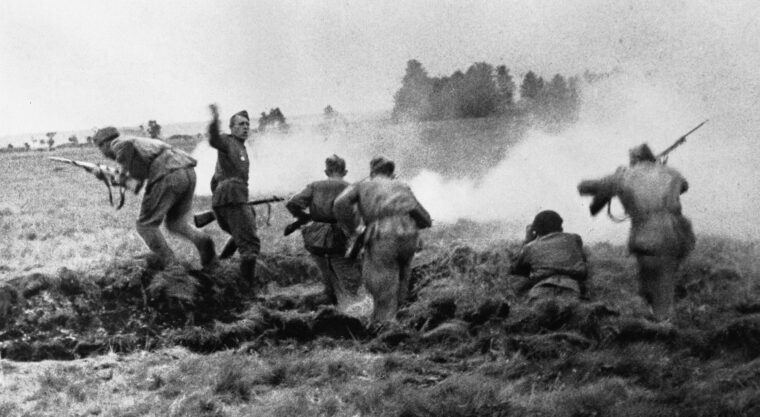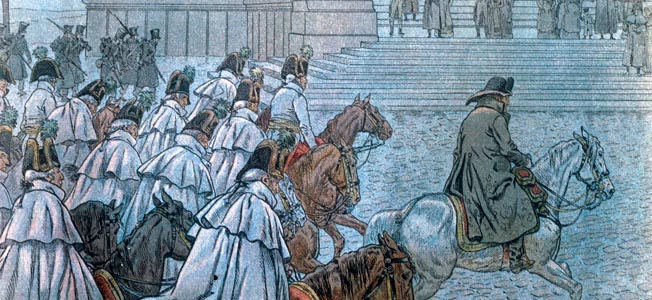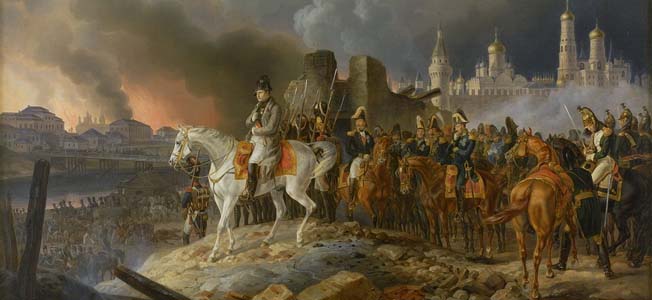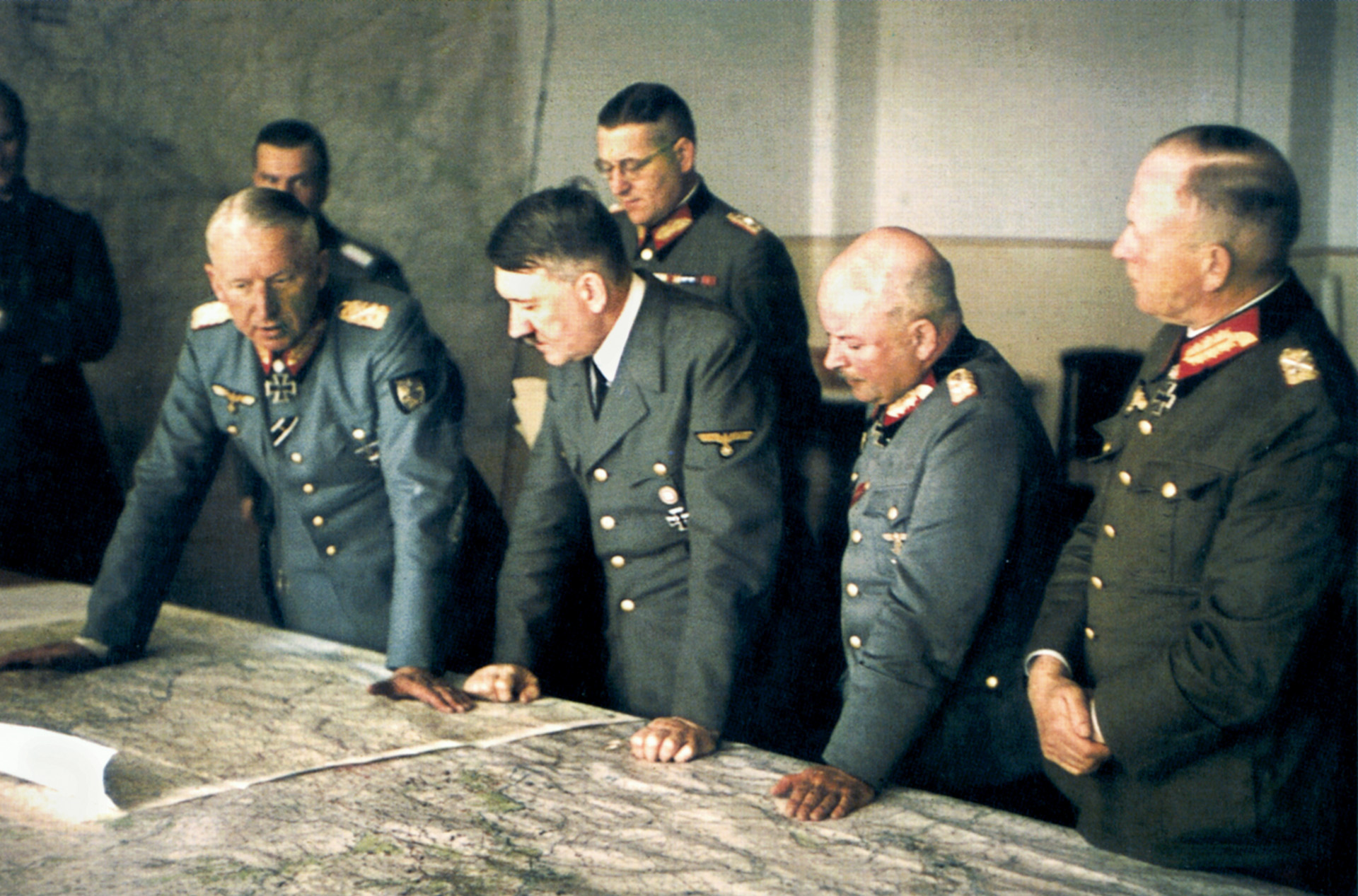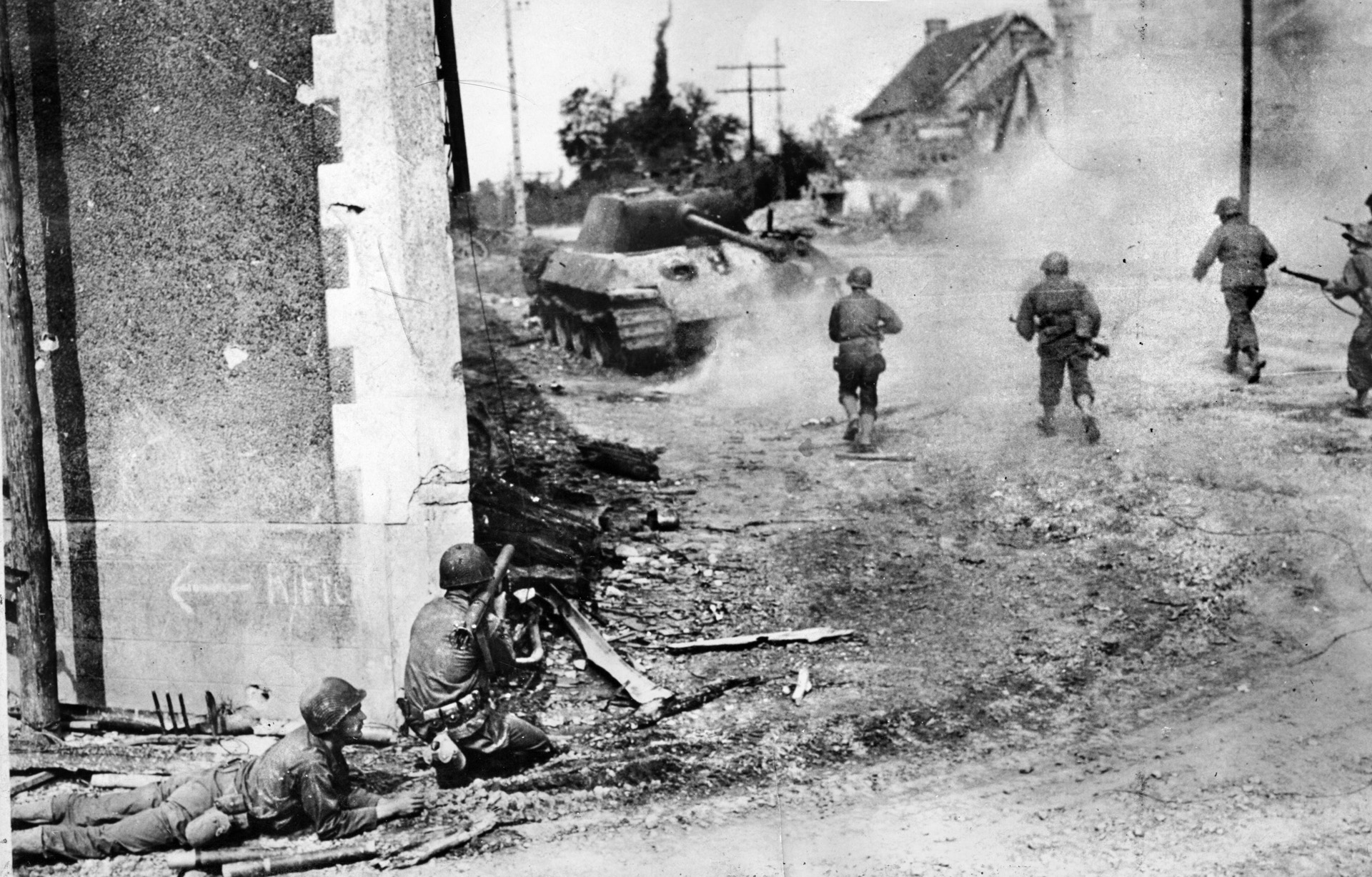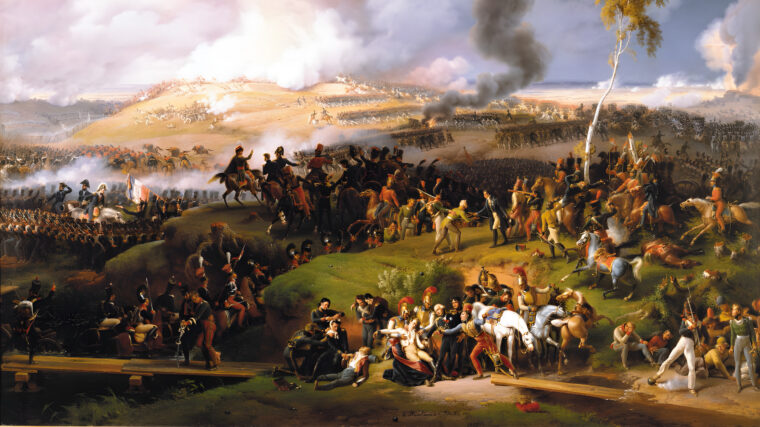
Battle of Borodino
Napoleon Bonaparte & The 1812 Battle of Borodino
By Jonathan NorthAt 11 o’clock on the evening of June 23, 1812, the first elements of Napoleon’s mighty army marched on three pontoon bridges over the river Niemen and set foot on Russian soil; the epic invasion of Russia had begun. Read more
